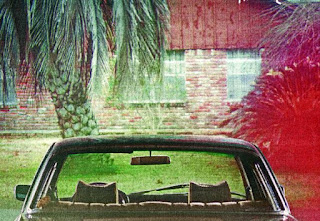The Lone Ranger Review
Pirates of the Wild West
Full, spoiler-free review by Isaac Handelman
Pirates of the Caribbean, the first product of Jerry Bruckheimer/Gore Verbinski collaboration, is one of the more impressive blockbuster success stories of the last decade. Based upon a Disneyland ride, the Pirates franchise has become one of Hollywood’s most enduring and consistently successful, and the series reached those heights with a deft mixture of swashbuckling action/adventure and offbeat humor. In the years since Pirates’ debut, Bruckheimer has poured millions into fostering other projects in hopes that they could achieve what Pirates did, and the disappointing performances of Prince of Persia: The Sands of Time and The Sorcerer’s Apprentice serve as demonstrations of just how difficult it can be to kickstart a multi-million dollar franchise as effortlessly as Pirates did. Bruckheimer’s latest non-Pirates gamble sees the producer re-teaming with Pirates director Gore Verbinski and star Johnny Depp in another out-of-nowhere adaptation -- that of a 1930’s radio series: The Lone Ranger.
And it’s quite apparent from the get-go that the filmmakers behind Ranger are hoping beyond hope for it to become their next runaway success story and blockbuster franchise. The film is structured around an awkward narration, as an old Tonto retells the tales of his adventures to a young boy at an amusement park. This odd overlay carries through the entire film, though it never adds anything to the proceedings outside of a padded runtime (in a film that already feels about twenty minutes too long, mind you), and ends up feeling entirely unnecessary, not to mention under-explained and downright confusing.
After the strange structural choice has had a chance to dissipate, The Lone Ranger kicks off in spectacular fashion, with an exhilarating train sequence at the start of the western adventure. In fact, this first action sequence is probably the film’s strongest section, as it’s where Ranger’s mix of quirky humor and surprisingly violent action work together most effectively. Throughout the majority of its duration, though, the film is downright bizarre from a tonal perspective. On one hand, Ranger seems to aspire to be a more mature blockbuster, with a few notably violent moments and some mildly disturbing imagery, tackling such dark elements as the slaughter of Native Americans and cannibalism.
 |
| Hammer and Depp both do their best, but neither is given much to work with. |
However, these darker themes, after being heavily showcased one moment, will be offset by a silly one-liner from Johnny Depp just seconds later. Whether these jarring instances of humor were meant to lighten the tone or to appeal to a broader audience is anyone’s best guess, but they lead to some undeniably uncomfortable moments.
And speaking of Johnny Depp, the venerable and exceedingly charismatic star plays a solid Tonto, but his aforementioned shots at comic relief are at best functional and at worst childish, a far cry from the hilarious persona Depp carved out for himself as the ever-memorable Captain Jack Sparrow. The chief issue on hand seems to be that, instead of writing the character of Tonto for Johnny Depp to play, the screenwriters wrote Tonto with the knowledge that he was to be played by Johnny Depp, which proves troublesome and allows for little room for the capable star to carve his own character out of the heroic Native.
Depp's resulting rendition of Tonto feels almost out of place and in stark contrast to the majority of the film, which feels grittier and more serious than past Disney adventures. The awkward depiction of the Ranger's sidekick may have been less noticeable had the Lone Ranger himself been imbued with much in the way of coolness, but this is not the case. Instead, The Lone Ranger takes so much time to make snarky, self-conscious jokes about the ridiculousness of its protagonists that it forgets to make either of them much fun to root for. Admittedly, this issue is alleviated during some of the film's most exciting action sequences.
 |
| You'll notice I didn't mention the Ranger's love interest in my review. That's because she's entirely unnecessary. |
And speaking of the action sequences, these sections are the saving grace of The Lone Ranger. The central narrative is not entirely original, but it does take a few clever twists and turns, fleshing out its heroes and managing to leave a good impression and a get across a solid message by the film's close.
Still, though, its primary function is to allow for high-stakes action scenarios, and the film delivers strongly on this front. The action sequences, especially those at the film’s opening and its finale, are some of summer 2013’s best yet, creatively utilizing The Lone Ranger’s western setting to set the stage for a few truly exhilarating moments. Hans Zimmer’s score punctuates portions of the action, but is never given enough time in the spotlight to truly shine, which is strange given the composer’s impressive pedigree and huge success crafting an iconic and recognizable theme for the Pirates franchise. Zimmer’s score doesn’t come into its own until the film’s credits and -- as with most film’s graced with a Zimmer score -- I’d recommend sitting through at least a portion of the credits to listen to the stellar score.
Though big-budget blockbusters are a dime a dozen these days, The Lone Ranger should be commended for its bold willingness to embody the full essence of the western in a day and age when the genre is all but extinct. Unfortunately, the film’s sporadic tone and unsuccessful aping of elements from the Pirates franchise keep it from being the movie that revitalizes the western. The Lone Ranger was obviously meant to be something special -- perhaps even “the next Pirates of the Caribbean” -- but what we’re left with is an exhilarating but ultimately forgettable summer blockbuster.



Comments
Post a Comment